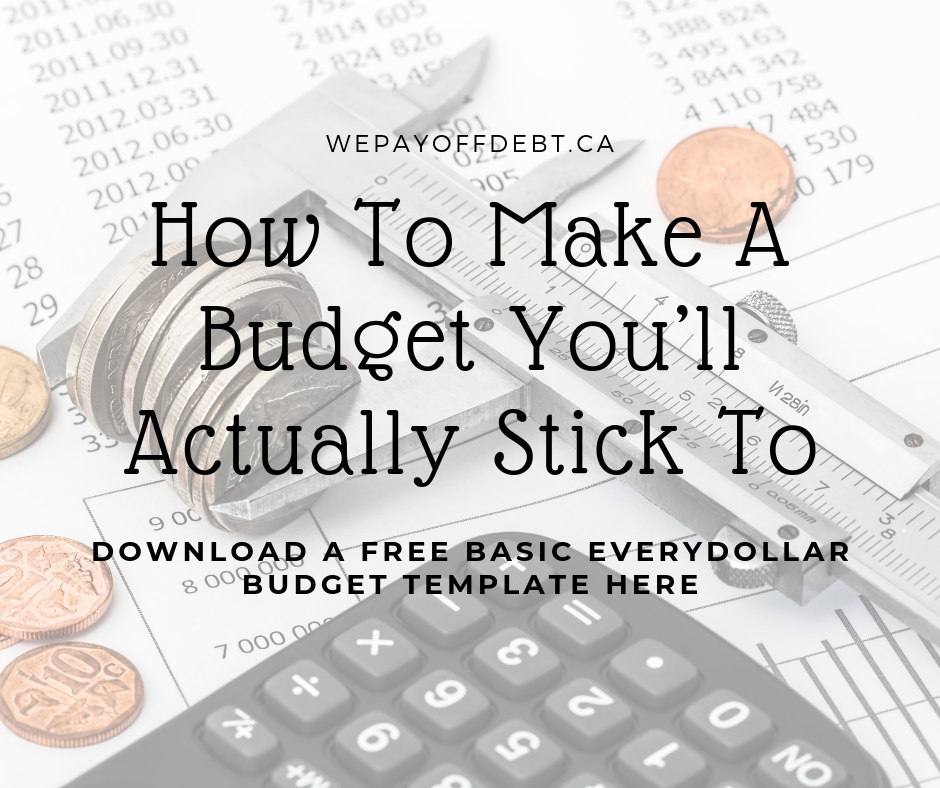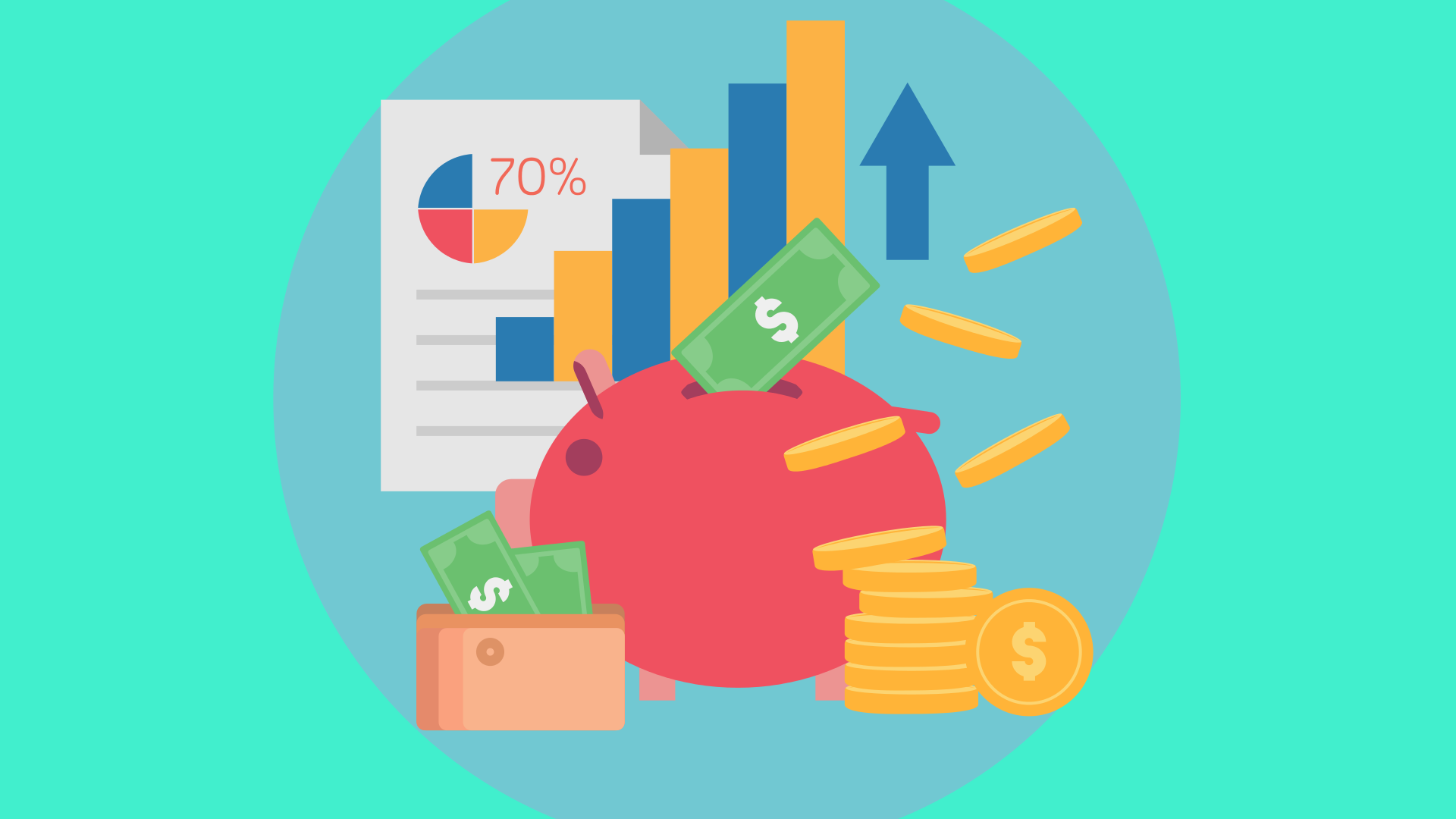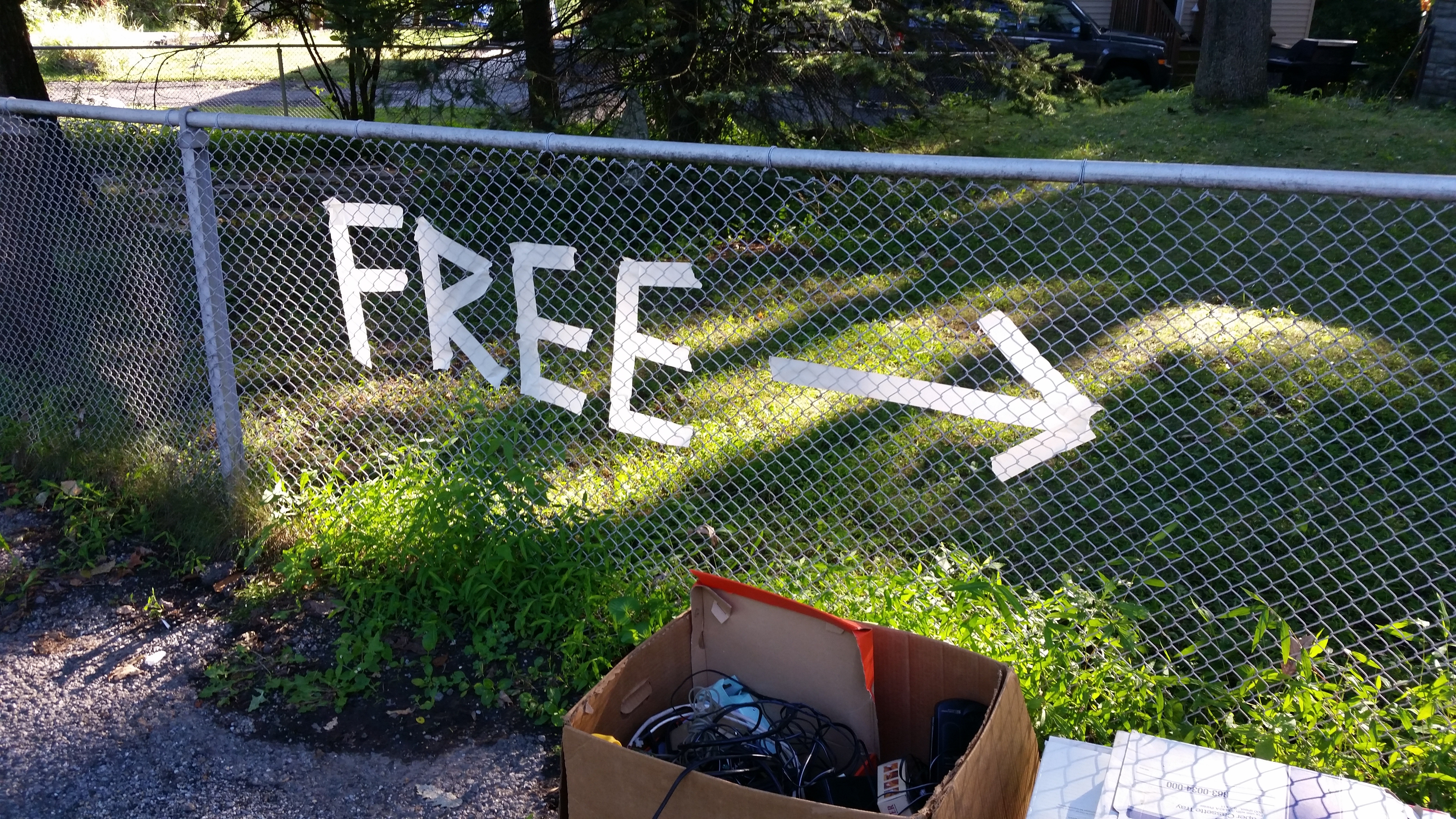There are many schools of thought around this question, but to me, it BIG TIME depends on where you’re at financially with your DEBT load, and then, if your out of debt, lots of personal and professional factors.
Why You Need A Budget Buffer Zone (And How To Do It Right)
The Buffer Zone. Not many people are paid daily, and even people less have their expenses set up in a way where a bill for $X is due only after you’ve received at least $X this month! We need a BUFFER ZONE to be able to pay the bills in between pay periods. This is NOT your emergency fund, just a buffer zone to keep the household running between income payments.
This Will Forever Change The Way You Budget For The Better!
When you make a budget, and 3 days later your world has entirely changed, do you change the budget?
Is the budget some sacred document that can never change once it’s been made?
That’s what I used to think, and it crippled me from succeeding with my budget. In this video, I share the main paradigm shift that means you will change your budget (in fact often), and how this will really help accelerate your success with budgeting.
Watch the video below:
(Click here to watch on YouTube)
What’s The Ultimate Goal?
The ultimate goal of keeping a budget is knowing where your money is going. For instance, if in your job, you were given the authority to choose where to spend $10,000, THAT is not a budget. If even given this authority they expect you to tell them where you’re going to spend it, and then where you DID spend it, THAT is a budget. A spending plan. This is all they really care about if they’ve given you the authority to decide – where are you planning to put it, and where DID it go?
When The Budget Changes
What if you told your boss that you’d spend $250 on this software package or this service or this new electronic device, but it actually came in at $300. What now? Well, first we can ask why did this happen?
- It might be just because you were dumb. I’m dumb sometimes. You could have made a stupid mistake. Maybe it was priced at $250, but you forgot taxes and/or shipping.
- It might have been due to a lack of discipline. Maybe to get the $250 deal you needed to get there by 10 am, and when you arrived at 10:30 am, the price had gone up. Or maybe you gave in to temptation and overspent on something.
- Maybe you misread the ad and it was actually priced $300, not $250. Maybe you just wrote it down wrong in your original budget.
All these are ways we make mistakes sometimes, and while we work hard not to make these mistakes, sometimes they are inevitable.
But What Does The Business Care About?
Sometimes they will care you made a mistake, sometimes they will care that you were undisciplined. But if you were in a circumstance where they gave you the authority to choose where the money was spent, odds are good they only care about the error in as much as it affects how much you spent. They just want your spending plan. Now that this error has happened, what is your new plan?
And that’s the important thing to notice: you need a new plan. There is little to no value in keeping the old plan. That old plan, expectation and potential reality has changed, and it’s not the truth at this point. We now KNOW that the item costs $300, so the company wants to know your NEW plan. Now that you overspent by $50 on this item, are you planning to take that $50 out of somewhere else? Or are you going to go over budget? Or maybe you’re going to bring in more income to offset that? WHAT IS YOUR NEW PLAN?
The Budget
You are the Chief Financial Officer of a business called You, Inc., and you are expected to produce a spending plan for this business! If you make $100,000/yr, then essentially you are in charge of managing the finances for a business that makes $100,000/yr!
A budget is a plan; a spending plan. It’s what you’re planning to spend your money on.
When I first started making budgets, I felt like when you make the budget at the beginning of the month, it needed to stay that way. You would track it and track it, and eventually, you’re seeing how you were wrong and you’re over or under.
Is there any good reason to keep the budget you had at the start of the month? As I think about it now, the only reason might be that, as the month goes on, you actually know how bad a budgeter you were a month ago.
Who cares?
All I care about and all you should care about is how this month’s money is going to be spent. Here’s the paradigm-shifting thing that changes everything:
When your budget changes, when something changes in your budget, change your budget.
Let’s Get Practical
Imagine in your budget you planned to spend $100 on a particular event out with coworkers. But, at the end of the night, the bill comes, and you owe $115. What happened? How did this happen? These are great conversations to have: to discuss why this happened, and how you can avoid it in the future – was it because you were undisciplined? Stupid? A silly mistake? But that’s not my point here.
You’ve already bought (and consumed) the food. It’s done and you did it. You can’t choose to not pay the bill because it wasn’t in your budget. After the bill is paid, the next chance you get, you need to edit your budget to this new reality – the one in which you spent $115, not $100.
Don’t get me wrong: you don’t need to do it right then or anything (you can wait until you get home to pull out your budget app!), but it needs to be updated.
The Consequence Of The Zero-Based Budget
Now here’s where things get tricky: the only budget I would ever recommend making is what’s called a Zero-Based budget (watch more about how to do that here), and in this situation, every dollar in your budget had a job – a mission – before you overspent at this event. That means those $15 dollars you overspent were supposed to go to another mission somewhere else, and because you did this, they can’t do that other job now!
So, you need to up the budget for this event by the $15 extra you spent, and you’ll need to lower your budget somewhere else by $15. You actually need to consciously choose what you are spending $15 less on because of this event. This now points out how awful this situation is – you’re other mission won’t be accomplished because you didn’t follow through on your budget! This feeling sucks, and it’ll encourage you to stick to your budget in the future!
The key here is really honesty: what really happened. The key paradigm here is that
Your Budget Should Always, As Much As Possible, Reflect Reality.
It may not get there all the time, but this should always be the goal.
How To Do This Easily?
There is an app I use for this: EveryDollar (www.everydollar.com). The app can be downloaded for iOS and Android, and it’s super easy to update when there’s a change to the budget.
Note: There is an issue the company is having right now where some Canadians are experiencing that the app is not showing up in the search, or it’s saying it’s not available in Canada. Please email me at rob@wepayoffdebt.ca if you’d like some help getting around this (as there is a way), and here are the links if can’t find it in the search:
The Effects Of This Paradigm Shift
This paradigm shift has been a game-changer in our family budget. We know, as accurately as possible, what our financial world looks like at every moment.
So what does this look like for someone paying off debt? What would this look like?
First, you make your budget for the month before the month begins and in this process, you decide how much is going towards debt. You feel great about it.
But then a bill comes in more expensive than you anticipated. Maybe you had budgeted $150 for your cell phone, but it comes in at $200.
The first thing you do is try to figure out what happened! Maybe you went over in your data usage (we do this unfortunately many months).
But, assuming there’s no error, we can’t change this now. But, we need to fix this in the budget somewhere now…but when you made your budget, you threw every extra penny you had at the debt? There are not many other places you can cut, so you may have to cut the debt repayment.
That said, if you can find a way to cut, for instance, your food or eating out or cable or something else, and you and your spouse are in agreement on doing so, great, but at some point, it’ll come down to taking it out of your debt repayment.
If it comes down to it that you decide to lower your debt repayment, this has a rather interesting of behavioral effect: when you lower the planned debt repayment you feel that, “BAH! That’s why I’m doing this! I want to get out of debt so badly!”
And, then it happens again and you lower it on your debt again and you change it again.
Then again. Don’t miss updating it. Not Even One Time.
It happens over and over and over three, four, five times you’ve lowered your debt repayment, now how do you feel? Frustrated and angry.
But now, 3 days later, you’re out at the store, and you’re tempted to buy that new nice pair of shoes, or that nice new purse or that nice new gadget.
At this point, you’ve lowered the dollar amount every single time you went over, and it’s been six times this month already and it’s only the seventh. This gives you the added push to say NO and to stick on your budget. I’m not gonna do this again, I’m not gonna purposely put me in a place where I have to again lower my debt repayment.
So as long as you hold to the commitment of updating your budget every time reality changes, you get an extra humph to stay on your budget.
The Keys To Make A Big Purchase Without Debt
Everything in our culture SCREAMS debt, and EVERYONE has more month left at the end of the money. Therefore big expenses almost NEED to go on credit, right? WRONG. You CAN make a big purchase in CASH and WITHOUT DEBT. You just need a few key tips to make it happen.
How much life insurance do you need?
What’s the purpose of insurance and do you need life insurance at all? What about on your kids? Let’s talk about it!
Do you want to get out of debt? See debt as the ENEMY.
Debt is your master, and the power it wields in your life is preventing you from living the life you want! KILL IT AND GET IT OUT OF YOUR LIFE!
“But I Might Be Losing My Job!” – What Is An Emergency While Paying Off Debt?
Debt freedom is so crucial and important in today’s world that, if you’re not out of debt, you need to GO NUTS to try to get out of debt!
But what about when it seems like it would actually be unwise to throw more of your cash toward the debt? Only $1000 emergency fund? How is that safe?
Here’s the problem: sometimes the emotions you’re feeling are exactly the same way whether you’re just scared and anxious, or there’s an actual emergency on the horizon. How do you determine where you’re really at? What if you’re going to lose your job?
In this video, I help you tackle the challenge of determining when what you’re feeling is an excuse compared to when it’s wisdom.
Watch the video below:
Got Free Time, A Vehicle, And A Huge Desire To Be Debt Free?
When you’re broke and looking to accelerate your debt payoff, putting more time towards working is a great thing to do. This is an idea I got from Gary Vaynerchuk that almost anyone with a vehicle in an urban environment can do to bring in some extra side money.
Taking Care Of The Four Walls
When you think about your finances, do you feel overwhelmed?
Or do you feel confused about how to live, even while you have a budget in hand?
After all, the money only comes in every now and again, and that credit card payment is due…what do I pay right now? I don’t want to ding my credit… I want that credit collector to stop calling…
Where do I spend the few dollars I’ve got today?
When you’re just getting started with budgeting, and you feel overwhelmed, it can be tough to decide what’s smart to pay first and what last. In this video, I try to lay out Dave Ramsey’s idea of the Four Walls and how to apply it to your budget.
To help you win, I created a PDF covering the details of the 4 walls. Download that here:
Watch the video below:
(Click here to watch on YouTube)
Are you Feeling Overwhelmed?
When I made this video it was September, and at that time of year, just like the new year, many people think
- “Ok, time to grow up and get myself back on track financially!”, or
- “I’m goin got start dealing with my budget”, or
- “I’m gonna get this debt paid off,” or
- “I’m gonna get a plan for the first time”…
And then real life hits.
September hits, and the kids are sick on the first day of school…
- Or the car breaks down the first week of school…
- Or creditors start calling because you’re late on that credit card bill that hasn’t been paid in forever…
- Or you get the first letter warning you that if you don’t pay your mortgage, there’s gonna be proceedings – they’re going to start to foreclose on your home!
All scary and frustrating, and enough to make you feel like there’s no hope – that there’s no point to doing this “budgeting thing.” It won’t work anyway.
Are you feeling out of control in your financial life?
Don’t worry – you’re not alone. Tons of people in North America today feel exactly the same way. Millions of people just figure this “budget thing” just isn’t for them.
If that’s you, I want to give you HOPE.
You CAN do it. You just need a PLAN.
So Here It Is.
The main focus is, of course, a budget. But since that seems overwhelming to many, we can start even earlier: what are the most important parts of your budget?
The Four Walls
This is what Dave Ramsey refers to as “The Four Walls.” These are the areas of your financial life that you actually NEED – the absolute essentials to surviving to fight another day.
These are the bedrock foundation for creating a budget. They are:
- Food
- Shelter and utilities
- Clothing
- Transportation
Let’s go into more detail on each of these.
1. Food
Rule number one or wall number one is food. You need to eat. Your family needs to eat.
If all else fails you need to eat.
But what is eating mean?
It means eating and that’s it. It does not mean eating out.
The first thing to make sure happens before everything else is food, that you have food to eat. That your kids have food to eat. That you’re family has food to eat. That’s groceries.
Why no eating out? Because, if you’re at this point of trying to figure out what’s most important to spend your last dollar on, and you went to McDonalds rather than pay your outstanding mortgage payment, and then you got foreclosed on…well…you just got foreclosed on partially so that you could eat at McDonald’s.
That doesn’t make sense.
So, if it needs to be pasta instead of steak okay, if it needs to be cheap food from that grocery store you usually turn your nose up at, do it. Whatever it takes. A nice cheap budget on food gets the food budget done.
2. Shelter
You actually need to keep the roof over your head – it’s hard to do much else when you’re homeless.
So, what does shelter looks like? You need to pay for things that allow you to keep your household up and running. For instance,
- property taxes,
- house / renters insurance,
- your mortgage payment / your rent
Whatever it takes to keep a warm dry roof over your head. If you’re renting, pay your rent on time. Shelter is the #2 priority after food.
3. Clothing
After that, we all need clothing. Now when I say clothing I don’t mean:
“Well, I’ve only got 37 shirts, but I need 3 more because I don’t like how these ones look”
Again, if you buy clothes you don’t NEED while your car is getting repossessed, that’s silly. But to buy diapers for your child and let the car get repossessed might be something we could talk about. If you’re at that point where you’re in freak out mode you’ve got to be looking at these as the absolute minimum you need. So, clothing is just basic needs. If there are clothing needs in your household – clothing necessities – buy those next.
4. Transportation
Now that you have a full stomach, you’re warm and dry, and you’re dressed, being able to get to work is the next most important thing to make sure everything stays that way! You need to be able to get around, whatever transportation looks like for you.
If you’re able to take the bus okay, do it. But what is the minimum for you and you’re in your life right now that you need to get around? This could include things like
- A car payment,
- Maybe gas,
- Probably car insurance
- Anything else you NEED to be able to get around.
The bottom line: the 4 Walls are those things that are absolute necessities, and nothing else.
Now that these are in the budget, how do you feel?
When you spend the time and buy these things first,
- you’ve got a roof over your head;
- you’ve got food in your belly;
- you’ve got gas in the car to get to work; and
- everybody is clothed.
How does that feel?
You’re on solid ground, and that feels good (especially if you haven’t been there in quite a while).
Everything else is a game
At this point, everything else is a game…It might be a game you’re behind in, but everything else in comparison to the 4 Walls is on the level of a game.
What does this look like if, for instance, you have a credit card bill? Well, it certainly comes after the above.
If a cable bill comes in, it comes after those.
Any other bill at all that comes due, you pay for the 4 Walls FIRST.
It does not make sense to miss a rent payment ever, except if you can’t eat if you pay your rent. It’s the number 2 thing to pay for! Everything else matters less.
It’s way better to not pay a credit card on time then not pay your rent on time. It makes no sense to pay a bill to a creditor when your house is getting foreclosed on.
It’s all about priorities.
What does this look like?
We want to get a secure footing, we want to get you to a place where you’re not so freaked out. We want the emotions to be able to be brought down, and let you start working from a solid foundation – to feel like you can CHARGE on your goals and work towards them BOLDLY.
Once you have these 4 Walls taken care of, you can feel solid. Everything else is a game. You might be losing the game right now, but it’s still a game. You are alive, you have food in your belly, you have a roof over your head, you have heat if you’re in a cold place and you have air conditioning if you’re in a crazy hot place.
Moving Forward
So, if you’re struggling with this, I want you to download the PDF below. This is a list of all the details, all the things that you could possibly put into The 4 Walls:
The next time you sit down to make a budget and you’re struggling with where to get started, grab this list, print it out, and fill out these items FIRST.
Also, be sure to check out my other video on How To Make A Budget You’ll Actually Stick To:

But these four things, the 4 Walls, are the first things that go in your zero-based budget.
They have to go in first, they are the most important and then everything comes after that.
Hope That Helps!
If you download the PDF, on the Thank You page there’s a link there to join our private Facebook group. This is a place you can come to get help, find community, and find people who care and understand what you’re going through.
Feel free to hit me up as well if you’re really struggling, if you’re at that place where you’re freaked out. I was frustrated with our finances for a long time and can relate to many struggles. Shoot me an email rob@wepayoffdebt.ca and let me know what I can do to help.
Thanks so much, good luck to you and we’ll talk to you again soon!
The Best Way To Pay Off Your Debt
It’s not the mathematically best way, but in fact, it has been proven to be the best way. We did it, and you should too. Paying off debt feels AMAZING – get to it!










